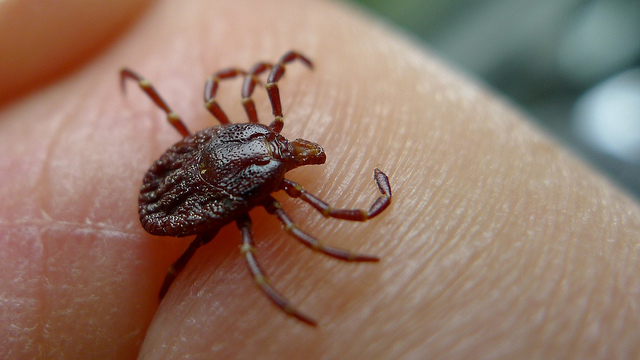April Showers Bring Bugs Bites?

By Huriyah Malik
Who would imagine that a tiny bug could transmit a life threatening disease?
Recently, Canadian singer and songwriter Avril Lavigne was bitten by a tick and diagnosed with Lyme Disease – a dangerous bacterial infection.
During her five month fight with the disease, Lavigne “felt like [she] couldn’t breathe, couldn’t talk and couldn’t move. [She] thought [she] was dying.” The tick bite caused symptoms such as lightheadedness and lethargy. Lavigne stated that she could barely stand and felt like her life was being sucked out of her.
The bacteria Borrelia burgdorferi, is transmitted through tick bites and causes the flu-like symptoms of Lyme disease that can progress to joint pain, meningitis, paralysis, muscle problems and weakness. It can further cause brain fog: forgetfulness or confusion that occurs the nervous system becomes infected as well. The most common identification of Lyme disease is a rash with a small red bump in the center, like the distinctive shape of a bulls-eye.
Since Lyme disease is a bacterial infection, the most common treatment is the administration of antibiotics. Tetracycline-type antibiotics, specifically doxycycline, have proven to work well against the neurological symptoms.
Removing a tick within the first twenty-four hours after a tick bite decreases the risk of developing Lyme disease. The longer the tick remains stuck to the body, the greater the chances of becoming infected.
The University of Georgia offers undergraduate courses such as Medical Entomology every fall and spring semester for students interested in learning more about insect-borne diseases such as Lyme disease. This course is a great way to become more aware of the various diseases carried by those little creatures that outnumber humans thousand-fold, allowing students to gain more insight into the various diseases caused by insects and to gain awareness of their increasing prevalence.
The next time you go camping or go hiking in the woods, especially during Spring, make sure to be aware of the small, yet dangerous, ticks.

